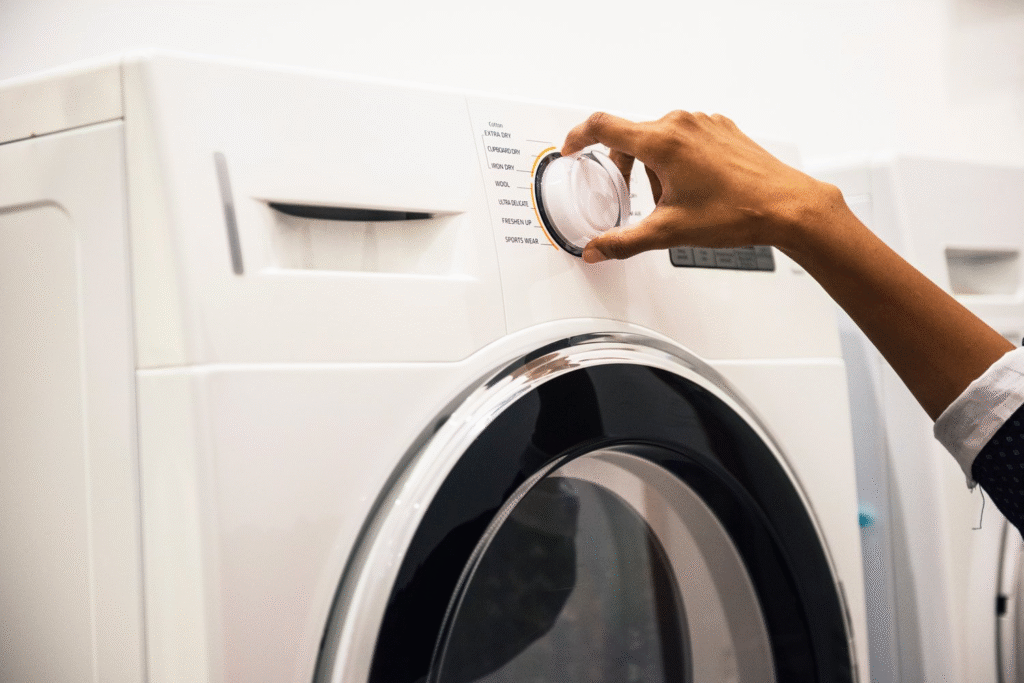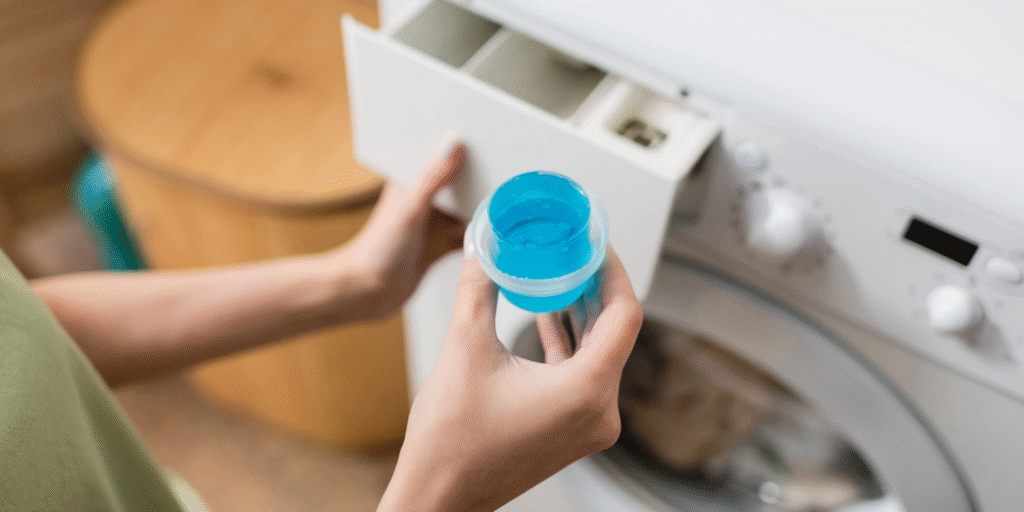Now Reading: Stop Wasting Water: Only Wash Full Loads, Experts Say 2025
-
01
Stop Wasting Water: Only Wash Full Loads, Experts Say 2025
Stop Wasting Water: Only Wash Full Loads, Experts Say 2025

In today’s fast-moving world, small changes in daily routines can lead to big impacts on the environment and your wallet. One simple yet powerful habit is to only wash full loads of laundry and dishes. While it may seem like a minor adjustment, running your machines at full capacity is a smart way to save water, electricity, and money — all while helping protect the planet.
This eco-friendly tip is more than just a good suggestion — it’s a proven method to reduce household waste and energy bills, especially during times of rising utility costs and climate concerns. Whether you’re doing laundry at home or washing dishes in your kitchen, here’s why waiting for a full load is a win-win.
What Does “Only Wash Full Loads” Mean?

The idea is simple. When you run a washing machine or dishwasher, it uses almost the same amount of water and energy whether the load is full or half-empty. That means every small load you run wastes resources that could be better used — or saved altogether.
A “full load” refers to filling the machine close to its designed capacity. For laundry, that means filling the drum without stuffing it so tight that clothes can’t move freely. For dishwashers, it means using all the racks and slots effectively before starting a cycle.
The Water Wastage Problem
Water is one of the planet’s most precious resources, and washing machines and dishwashers are two of the biggest household consumers of water. According to the U.S. Environmental Protection Agency (EPA), the average family can use around 13,000 gallons of water annually just on laundry.
Running only full loads can cut this number significantly. For example:
- A standard dishwasher uses around 6 gallons per cycle.
- A washing machine can use 15-45 gallons per cycle, depending on the model.
If you run half loads twice as often, you’re doubling your water use without getting better results.
Save Money with Fewer Loads
Utility bills continue to climb, and one of the easiest ways to reduce them is by using appliances more efficiently. Cutting down the number of laundry or dishwashing cycles means you’re using:
- Less water
- Less electricity or gas
- Less detergent
Over time, these savings add up. The Department of Energy estimates that using an ENERGY STAR-certified washing machine can save up to $370 over its lifetime. Combine that with smarter habits like only washing full loads, and the savings could be even greater.
Environmental Benefits
The environmental cost of every wash cycle goes beyond water use. There’s also energy consumption, carbon emissions, and the wear and tear on machines that contribute to landfill waste over time. By reducing the number of wash cycles:
- You reduce the carbon footprint of your household.
- You extend the life of your appliances.
- You use less detergent, which can decrease chemical waste in water systems.
In short, a simple change in your laundry and dishwashing habits can have a ripple effect on the environment.
Better Results, Less Damage
Another bonus of waiting for a full load is that both clothes and dishes often get cleaner. Here’s why:
- Dishwashers and washing machines are designed to operate best when full.
- Items move better, allowing for more effective washing.
- Less friction from smaller loads means less wear and tear on clothes and fabrics.
Many people believe that small loads are “gentler,” but the truth is that most machines are optimized for fuller loads. Using the machine as it was intended delivers the best results.
Tips for Washing Only Full Loads
If you’re wondering how to adjust your habits without falling behind on chores, here are some easy tips:
- Sort laundry ahead of time so you can quickly build a full load of similar items.
- Use laundry baskets labeled by color or fabric type — whites, colors, delicates.
- Plan dishwashing around meals, and load efficiently to avoid wasted space.
- Use modern machine settings like “delay start” or “eco mode” if your schedule doesn’t align with a full load immediately.
- Avoid the temptation to run a small load “just to get it done.”
What About When You Can’t Wait?
Of course, life isn’t always predictable. Maybe you need a clean outfit for work tomorrow, or you’re out of clean plates. In emergencies, running a small load is fine. But try to make it the exception, not the rule.
If you regularly find yourself needing to run half loads, consider adjusting your routine:
Smart Machines Can Help

Many modern washers and dishwashers now come with smart sensors that adjust water levels and cycle times based on load size. However, these machines are still more efficient when run full. Don’t rely solely on smart features to save resources — good habits matter more.
If you’re shopping for a new appliance, look for ENERGY STAR-rated models and check reviews to see which machines perform best with full loads.
The Bottom Line
It may sound like a small thing, but only washing full loads is one of the easiest ways to live more sustainably. It’s a change anyone can make, and the benefits reach far beyond your laundry room or kitchen. From saving water and energy to cutting your bills and helping the environment, it’s a simple habit that adds up fast.
In the age of climate change and rising costs, every drop of water and watt of energy counts. So the next time you’re tempted to hit “Start” on a half-empty washer, take a moment and wait. The planet — and your budget — will thank you.
Read More:- Deyaar’s Latest Announcement Shakes Up the UAE Property Market






















